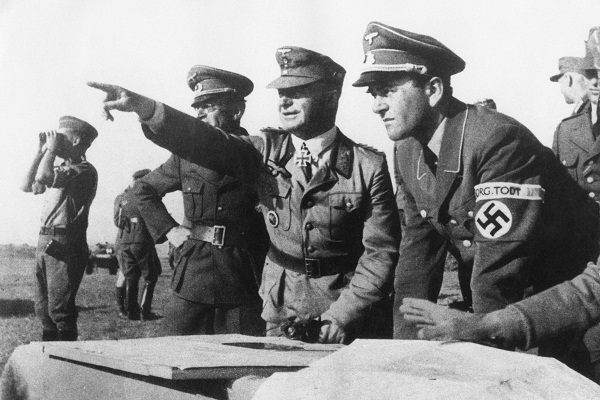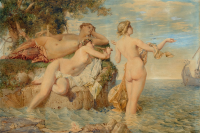The death of the author and journalist Gitta Sereny earlier this month drew some strangely critical notices. One piece even tried to blame her for a current cultural tendency to claim people are not responsible for their own actions. Though this was a dissenting view, there was a more general seam of criticism which ran through many obituaries. The claim was, essentially, that Sereny grew too uncomfortably close to her subjects and even ended up on occasions sympathising with them or excusing them.
It is probably on the basis of her biography of Albert Speer that most of the criticism has come. It is true that Sereny got close to Speer and liked him. It is also true that some revelations that have come out since her book was published in 1995 (and doubtless more still to come) suggest more complicity and guilt on Speer’s part than either he acknowledged or Sereny knew. But the resulting book remains a masterpiece, and even Speer’s caginess on certain subjects is more revealing in Sereny’s work than in others.
The second critical item on the charge-sheet was that Sereny paid money to the murderer Mary Bell for her cooperation on the book Cries Unheard: the story of Mary Bell (1998). That book, her second book on Bell, still rankles with many people. I suppose the rights and wrongs can never be settled. On the one hand, by paying for her co-operation, Sereny could be said to have helped Bell (by then an adult who had served her time in prison) profit from her crime. But against this can be put not only the minimal likelihood of anybody taking from this an idea that Bell’s path was one to follow, but the not inconsiderable fact that the result is one of the most penetrating books ever written on a criminal.
These are arguments that will be picked over again. But I wanted to add two things. The first is to mention another book of Sereny’s which will outlive all this. Into That Darkness: from mercy killing to mass murder, about the Kommandant of Treblinka, Franz Stangl, is not only Sereny’s masterpiece, but one of the finest books I know. Genuinely harrowing and illuminating, anybody who hopes ever to attempt an understanding of how the Holocaust happened really has to be acquainted with the book. And if you read the story on pages 207-8 of the first edition (1974) you will be reminded of how vital it was that Sereny had the inquisitiveness, journalistic skill and personal strength to get so close up with her subjects.
Which leads to my second point. Some of the criticism of Sereny has either ignored or diminished her real achievement which was, to my mind, almost unequalled and never exceeded. Through all her books Sereny did something which distinguished not only her career, but her profession. She walked right up to the lip-edge of evil, stared straight at it, did everything anyone could to understand it and then walked back to the rest of us and told us about it. Along this way she learned, and communicated, that people who do unimaginable things are not – as we often like to pretend, in order to console ourselves – ‘monsters’ of a different species, but human beings made warped and wicked in ways which can be understood though never excused.
Anybody who performed such a task would have had their critics. But far more than criticism, Sereny deserves our thanks. There are not many heroes in this field. Sereny exceeded them all.







Comments